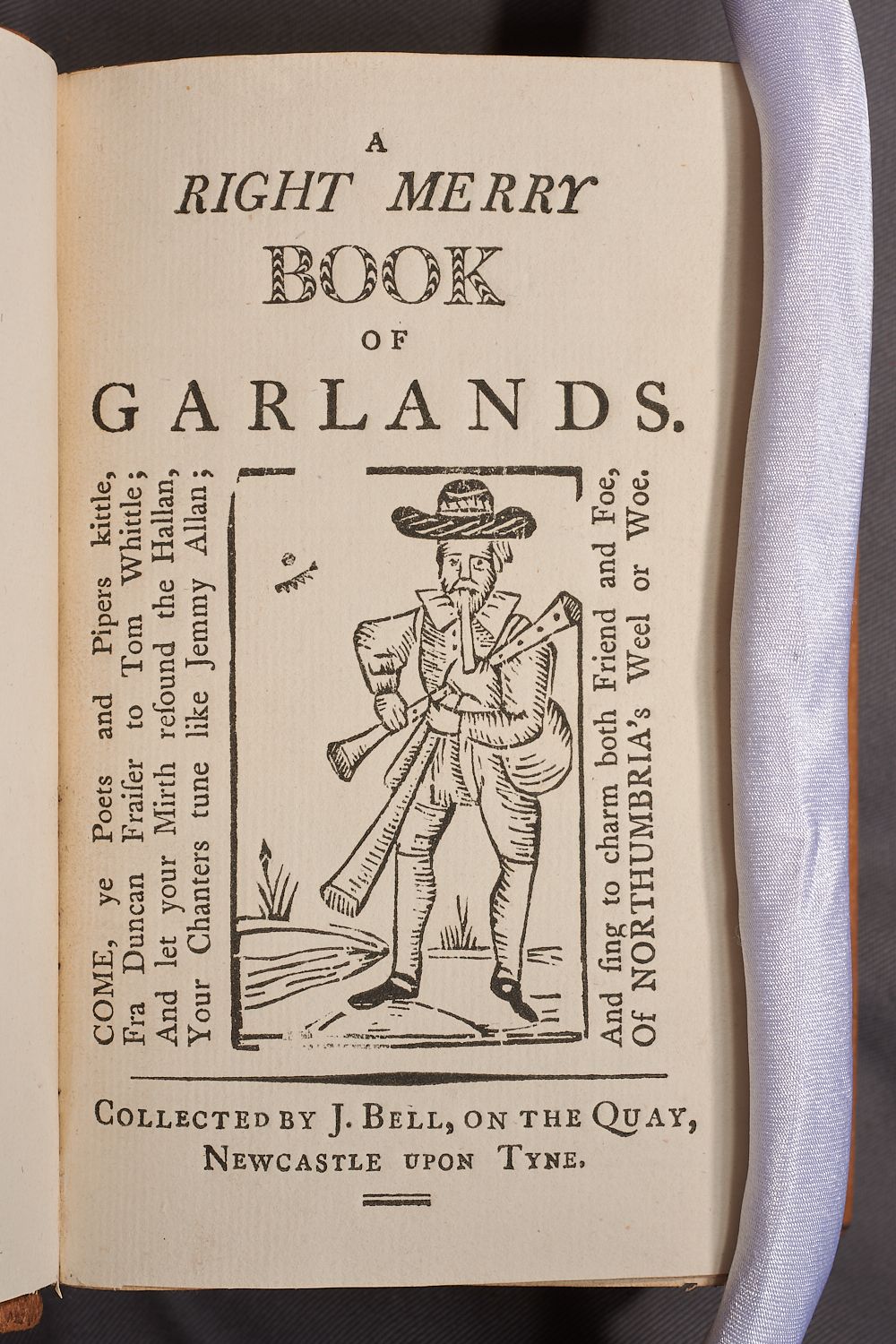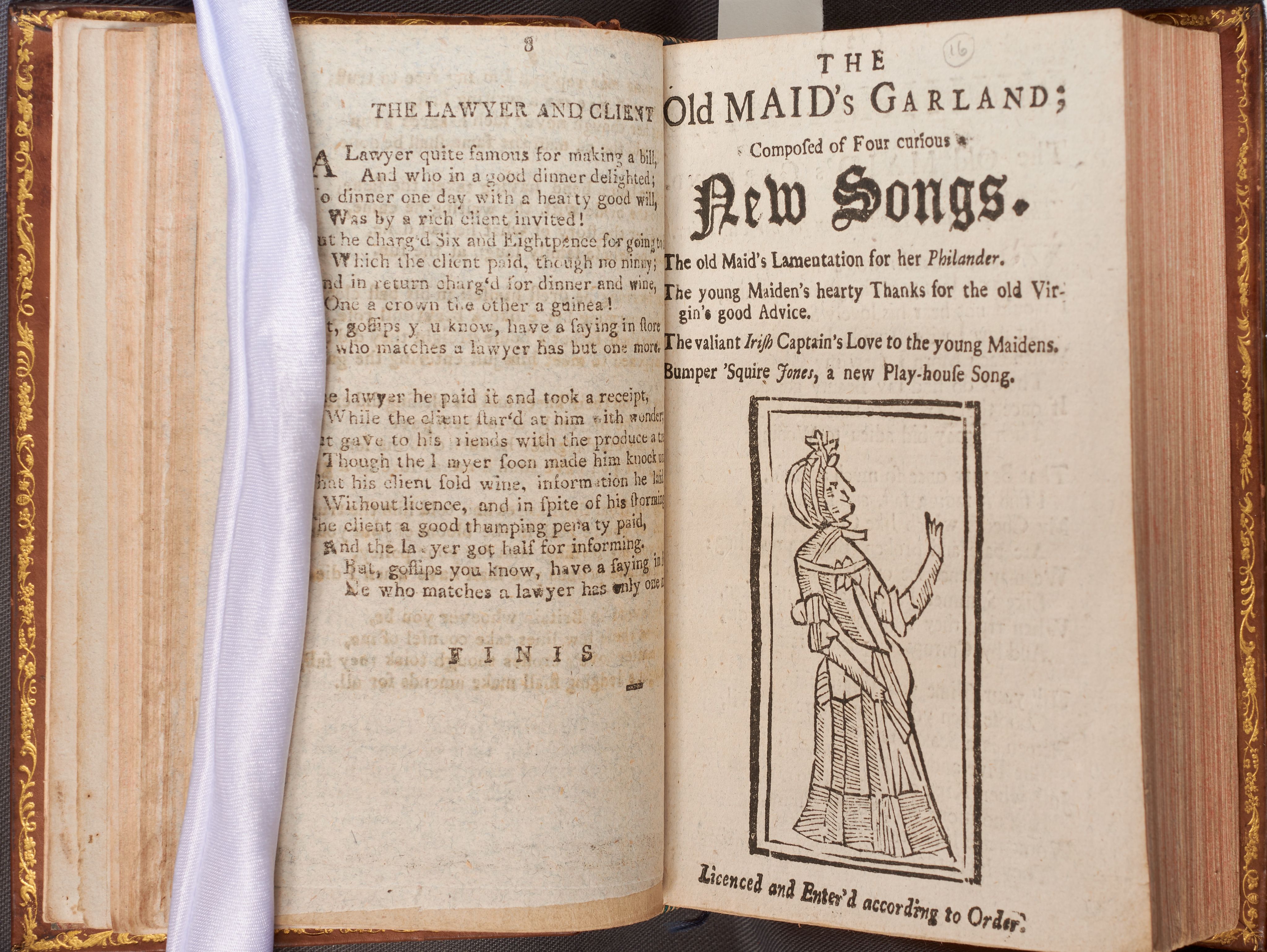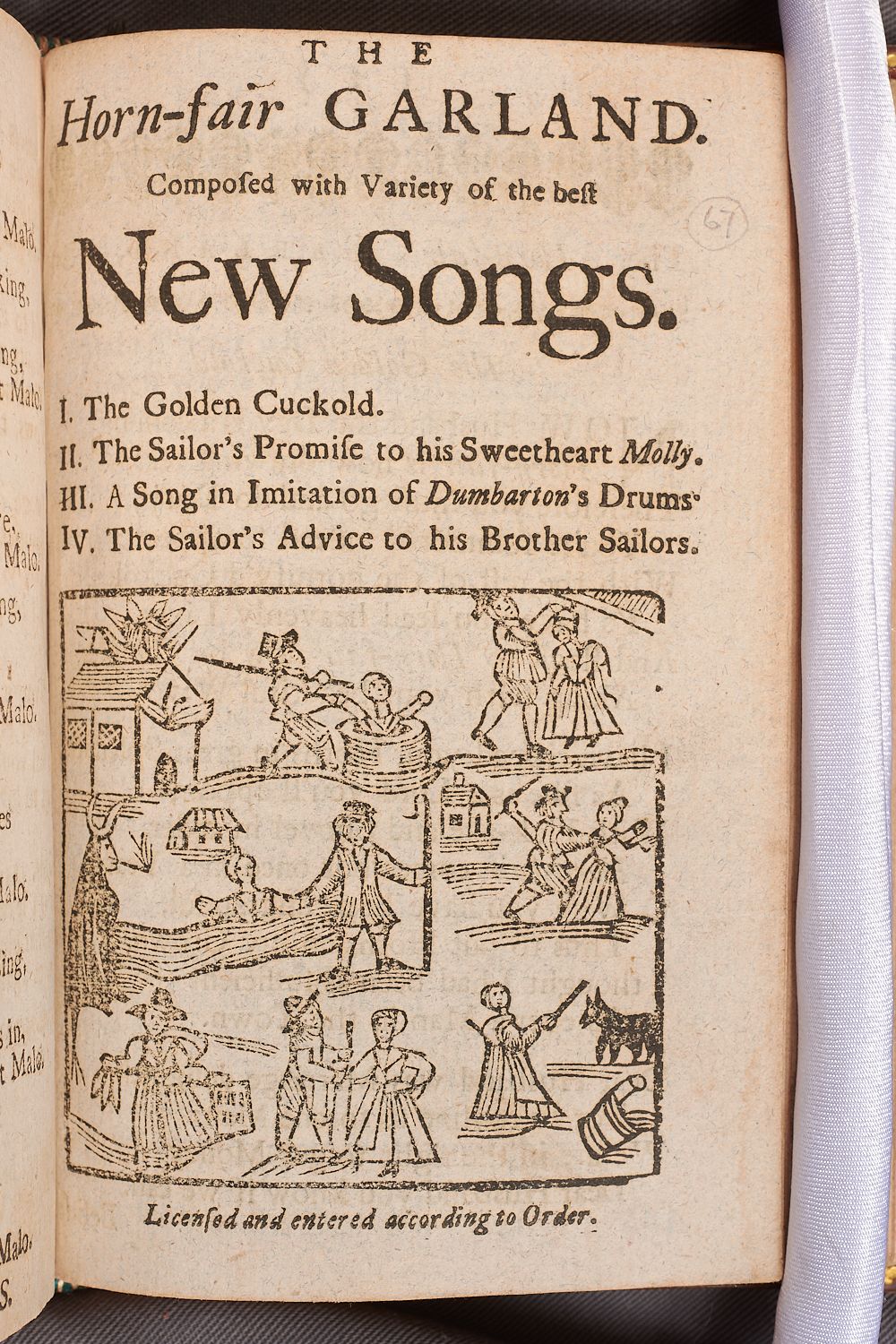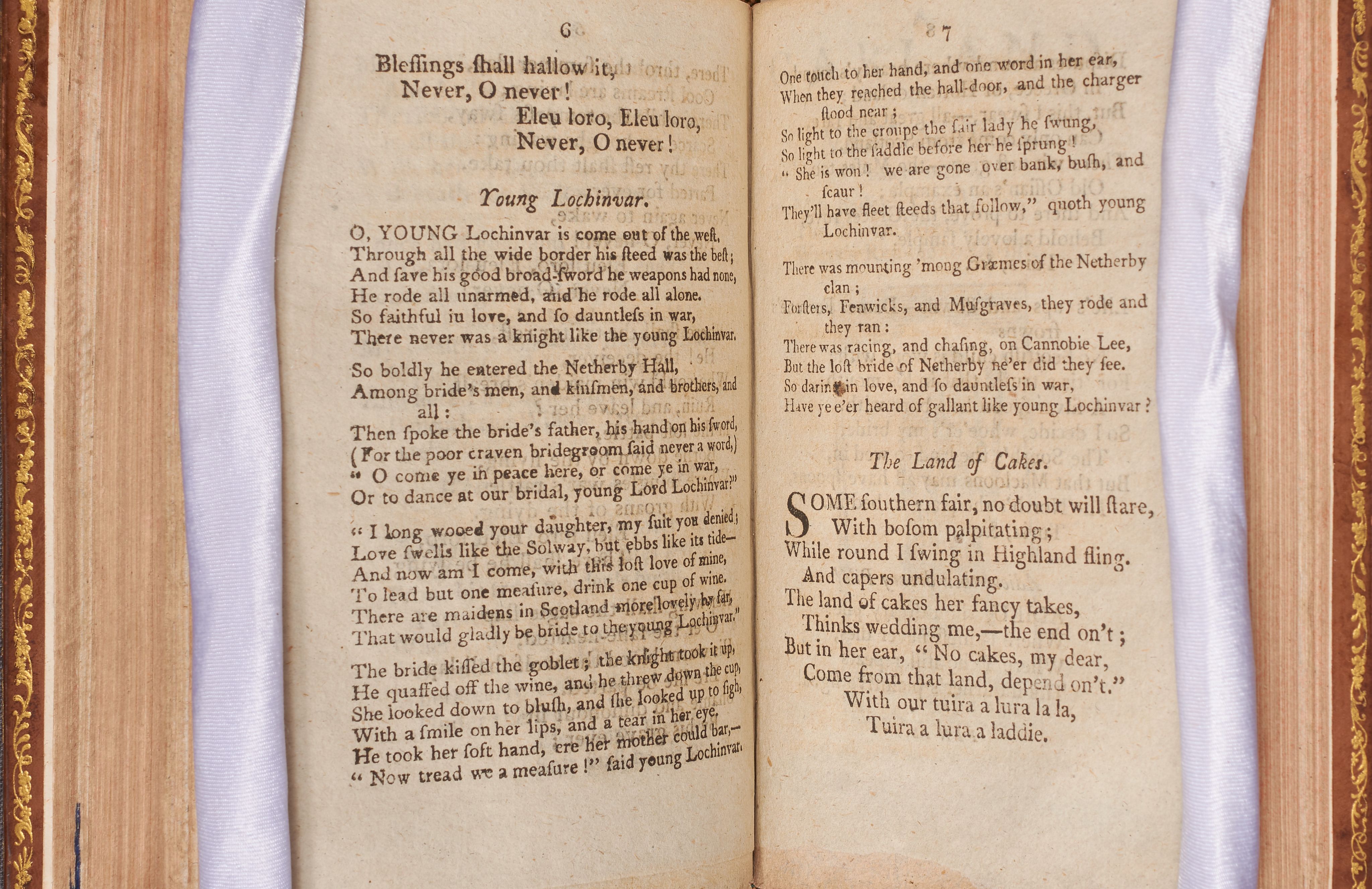8. Song

Scott’s collection is particularly rich in song material and contains many Garlands (a name frequently given to collections of songs) and horn-fair chapbooks.
A ‘Horn Fair’ was a name originally given to a Kentish fair selling horn goods, but it was used in the seventeenth and eighteenth centuries to describe collections of song that represent the atmosphere of a fair, particularly when connected to accounts of cuckoldry (the betrayal of a husband by an unfaithful wife).

These songs cover many themes, including thwarted love, passion, loyalty, deeds of heroism, and celebrations of particular places. However, much of the political activity of the day is also reflected in the song material, with songs about Trafalgar, Waterloo and Napoleon’s defeat. While some of these are celebratory in tone others explore the heart-break that war can cause.
Many of the songs we now think of as by Robert Burns or James Hogg can be found in earlier and alternative versions in these chapbooks and traditional songs are repurposed to serve the political concerns of the day.
Perhaps what is most interesting about these song items, however, is the fact that they show that lyrical material was moving in two directions simultaneously – both from the oral culture into print but, via literature being sold door to door and from stalls, from print culture back into the oral or popular tradition. For example, one chapbook contains Scott’s own ‘Lochinvar’ originally published as ‘Lady Heron’s Song’ in Canto V of his poem Marmion (1808).
When Scott was collecting his own body of traditional material for Minstrelsy of the Scottish Border, Margaret Laidlaw, James Hogg’s mother, chastised him by saying songs ‘were made for singing an’ no for reading.’
However, Scott writes a title page for one of his early collections and describes some of the items in it as ‘ballads’.
The chapbook material shows a far more fluid border between print and oral traditions than Margaret Laidlaw's comment implies.
For more on Scott’s life-long interest in song visit our exhibition ‘Walter Scott and Song; Retuning the Harp of the North’.




